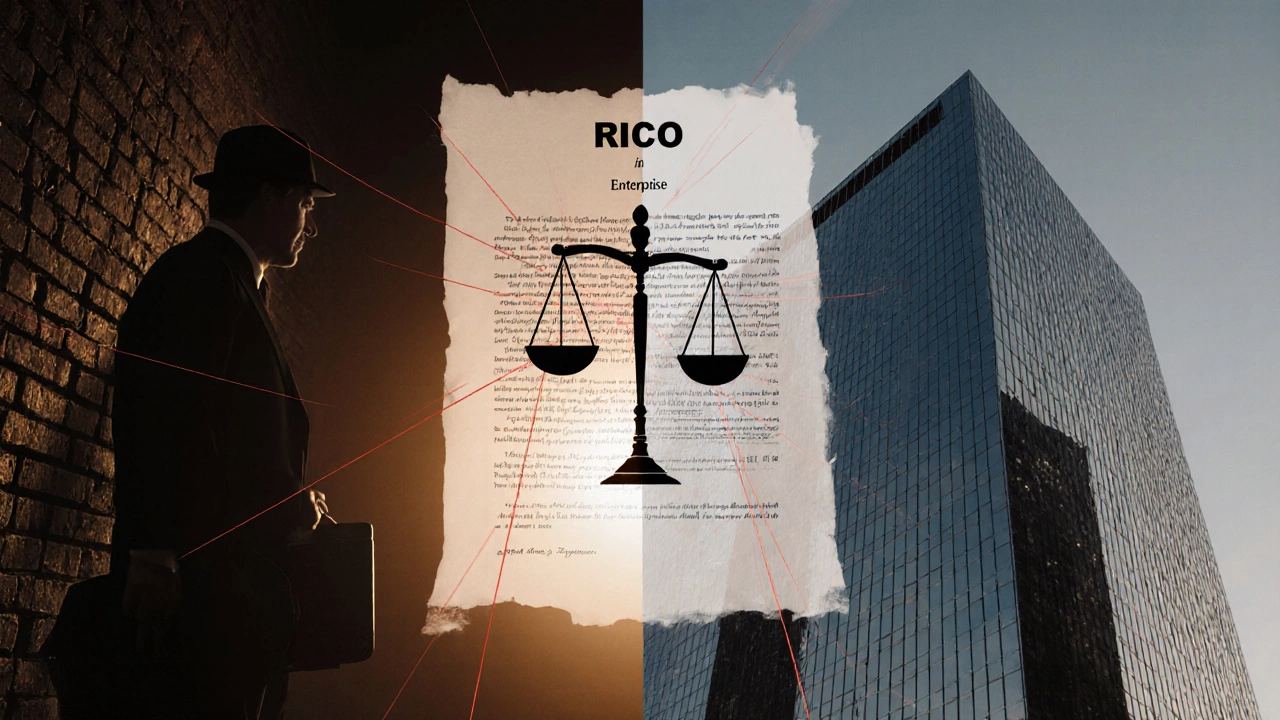RICO Law: What It Means and How It Impacts Criminal and Civil Cases
When dealing with RICO law, the federal statute that targets organized crime and racketeering activity. Also known as Racketeer Influenced and Corrupt Organizations Act, it empowers organized crime, groups that run illegal enterprises across state lines investigations, gives federal prosecution, the U.S. government to bring powerful charges against entire networks, and even provides a civil RICO, a private cause of action for victims to recover damages.
Key Elements of RICO Law
The statute hinges on two core ideas: a "pattern of racketeering activity" and an "enterprise". A pattern means at least two related illegal acts within ten years, while an enterprise can be a formal company, an informal association, or even a household. This pairing lets prosecutors show that isolated crimes are really part of a larger scheme, a semantic link that makes the case stronger.
Criminally, RICO carries heavy penalties. Convictions can result in up to 20 years per count, hefty fines, and mandatory asset forfeiture. The law also allows the government to seize property tied to the illegal conduct, effectively stripping a racketeer's resources and disrupting the whole operation.
On the civil side, plaintiffs can sue under RICO to claim treble damages – three times the actual loss – plus attorney fees. This punitive measure is designed to deter organized crime by making the financial hit overwhelming. Courts assess whether the plaintiff suffered a direct injury from the pattern, creating a clear line from the illegal act to the damage claimed.
Money laundering often shows up in RICO cases because it helps hide the proceeds of racketeering. When illicit funds are funneled through banks, real estate, or even cryptocurrency, investigators can tie those transactions back to the underlying criminal enterprise, strengthening both criminal and civil claims.
Historical examples illustrate the reach of RICO. The original mob prosecutions in the 1980s dismantled major Mafia families, while later cases targeted corporate fraud, pharmaceutical kickbacks, and even political corruption. Each case demonstrates how the statute can be applied to very different kinds of enterprises.
Defendants have several common defenses: arguing that the alleged conduct doesn’t form a pattern, that the alleged enterprise is too loosely defined, or that the statute of limitations has expired. Successful defenses often hinge on dissecting the timeline of alleged crimes or proving that the alleged “enterprise” lacks the requisite structure.
Jurisdiction matters, too. RICO is a federal law, so cases usually run in federal courts, but state courts can apply similar statutes. When the conduct crosses state lines or involves federal agencies, the federal venue provides broader investigative tools and harsher penalties.
Recent trends show RICO adapting to new threats. Prosecutors are now using the act against large-scale cyber fraud, ransomware gangs, and cryptocurrency scams. By treating these digital schemes as organized enterprises, the law remains a powerful weapon against evolving criminal networks.
Below you’ll find a curated collection of articles that dive deeper into each of these topics, from the basics of racketeering to the latest high‑profile RICO prosecutions. Whether you’re a law student, a practitioner, or just curious about how the government fights organized crime, the posts ahead will give you practical insights and real‑world examples.

RICO Charge Explained: What It Is, Penalties & Defenses
Learn what a RICO charge means, its key elements, penalties, real cases, defenses, and civil remedies in a clear, actionable guide.